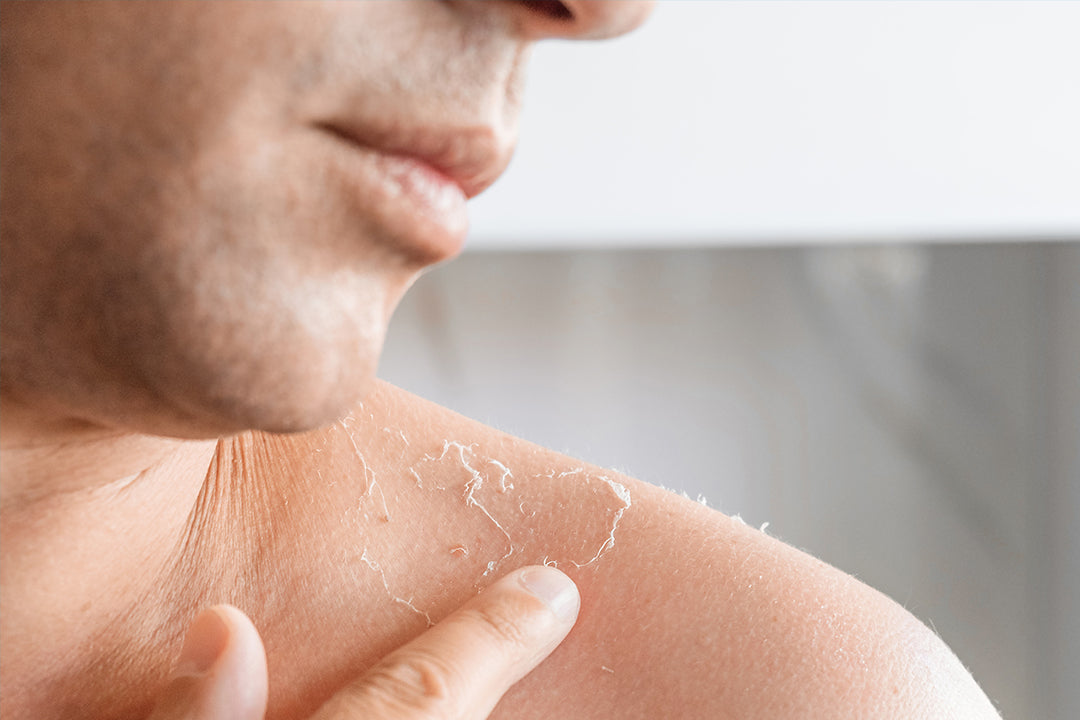Acne is a common skin condition that affects people of all ages. While genetics, hormones, and skincare products play significant roles in its development, diet is an often-overlooked factor that can influence the severity and frequency of breakouts. An anti-inflammatory diet, which focuses on reducing inflammation in the body, can be a powerful tool in managing and reducing acne. In this post, we’ll explore how certain foods can trigger inflammation, the benefits of an anti-inflammatory diet for acne-prone skin, and how to incorporate these dietary changes into your daily routine.
Understanding Inflammation and Acne
Inflammation is the body’s natural response to injury or infection, but chronic inflammation can lead to various health issues, including acne. When the body experiences inflammation, it produces chemicals that can trigger the sebaceous glands in the skin to produce more oil, leading to clogged pores and breakouts. An anti-inflammatory diet aims to reduce this internal inflammation, potentially improving the health of your skin.
Foods That May Trigger Acne
Certain foods have been shown to exacerbate inflammation and contribute to acne breakouts. These include:
- High-Glycemic Foods:
- Foods like white bread, sugary snacks, and sodas cause a rapid spike in blood sugar levels. This spike can lead to increased insulin production, which may, in turn, trigger the production of excess sebum (oil) and contribute to clogged pores and acne.
- Dairy Products:
- Milk and other dairy products can cause inflammation in some individuals, possibly due to the hormones they contain. Research suggests a link between dairy consumption and an increase in acne, especially in those who are sensitive to dairy.
- Processed Foods:
- Foods high in trans fats, refined sugars, and additives can increase inflammation in the body. Regular consumption of processed foods can disrupt the balance of gut bacteria, leading to skin issues like acne.
The Anti-Inflammatory Diet: What to Eat
An anti-inflammatory diet focuses on whole, nutrient-dense foods that help reduce inflammation in the body and promote overall health. Here are some key components:
- Omega-3 Fatty Acids:
- Found in fish like salmon, mackerel, and sardines, as well as in flaxseeds and walnuts, omega-3 fatty acids have strong anti-inflammatory properties. They help to balance the inflammatory effects of omega-6 fatty acids, which are more common in the typical Western diet.
- Antioxidant-Rich Fruits and Vegetables:
- Berries, leafy greens, bell peppers, and tomatoes are packed with antioxidants like vitamin C and E, which help neutralize free radicals and reduce inflammation in the skin.
- Whole Grains:
- Unlike refined grains, whole grains like quinoa, brown rice, and oats are low-glycemic and do not cause a rapid spike in blood sugar levels. They are also high in fiber, which supports healthy digestion and can reduce skin flare-ups.
- Probiotics:
- Foods like yogurt, kefir, sauerkraut, and kimchi contain beneficial bacteria that help maintain a healthy gut microbiome. A balanced gut can reduce systemic inflammation and improve skin health.
- Healthy Fats:
- Avocados, olive oil, and nuts are excellent sources of monounsaturated fats that help to reduce inflammation and promote skin health.
- Green Tea:
- Rich in polyphenols, green tea has anti-inflammatory and antioxidant properties that can help reduce acne flare-ups and soothe the skin.
Sample Anti-Inflammatory Meal Plan for Acne-Prone Skin
Breakfast:
- Overnight oats with chia seeds, topped with fresh berries and a spoonful of almond butter.
- Green tea with a splash of lemon.
Lunch:
- Quinoa salad with mixed greens, cherry tomatoes, cucumbers, and grilled salmon. Drizzle with olive oil and lemon vinaigrette.
- A serving of fermented vegetables like kimchi or sauerkraut.
Dinner:
- Grilled chicken or tofu with roasted sweet potatoes and steamed broccoli. Sprinkle it with turmeric and black pepper for added anti-inflammatory benefits.
- A small side of whole grain rice or quinoa.
Snack:
- A handful of walnuts or a smoothie made with spinach, banana, and unsweetened almond milk.
Additional Tips for Managing Acne Through Diet
- Stay Hydrated: Drinking plenty of water helps to flush out toxins and maintain skin hydration, reducing the likelihood of breakouts.
- Limit Sugar and Refined Carbs: Reducing your intake of high-glycemic foods can help balance blood sugar levels and decrease acne severity.
- Monitor Your Dairy Intake: If you suspect dairy may be triggering your acne, try eliminating it from your diet for a few weeks to see if your skin improves.
- Practice Mindful Eating: Stress can exacerbate acne, and mindful eating practices like eating slowly and avoiding overeating can help reduce stress and improve digestion.
An anti-inflammatory diet can be a powerful ally in your fight against acne. By focusing on whole, nutrient-rich foods and avoiding those that trigger inflammation, you can help manage and reduce breakouts from the inside out. Combine these dietary changes with a consistent skincare routine using QRxLabs products, and you’ll be on your way to clearer, healthier skin.





